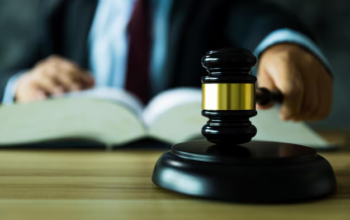When a legal case doesn’t go as expected, it can feel like a dead end. But, in the world of appeals, there’s often still hope—especially when new evidence or changed circumstances come into play. This is where an appellate practice lawyer steps in. They have the expertise to examine cases in light of these new developments and help seek a fairer resolution.
If you’ve faced an unexpected outcome, understanding how appellate lawyers handle new evidence or changes can make all the difference.
What Is New Evidence Or Changed Circumstances?
Before we dive into how appellate lawyers help with these issues, let’s first understand what “new evidence” and “changed circumstances” mean in legal terms.
New Evidence:
This refers to information or facts that weren’t available during the original trial. It could be newly discovered documents, witnesses, or even a new analysis of existing evidence that could impact the case’s outcome.
Federal Rule of Criminal Procedure 33 governs new evidence and motions for a new trial based on it.
Changed Circumstances:
These are situations where the conditions around the case have altered after the trial. For instance, a law might change, or a key individual’s situation may evolve, affecting how the case should be viewed or decided.
28 U.S.C. § 2255 allows for relief when a conviction becomes unfair due to changes in circumstances.
In both cases, the key question is whether this new information is enough to change the court’s original decision. This is where the expertise of an appellate practice lawyer is essential.
How Do Appellate Lawyers Address New Evidence?
If you have new evidence that could impact your case, an appellate practice lawyer can assess whether it’s significant enough to alter the original judgment. Here’s how they assist:
- Review the Legal Standards: Appellate lawyers assess if new evidence meets appeal standards. Under Federal Rule of Civil Procedure 60(b), relief can be sought if evidence, undiscovered with reasonable diligence, is found.
- Develop a Strong Argument: If new evidence is valid, the appellate lawyer builds a case explaining its importance and how it could have changed the verdict.
- File Motions for a New Trial: If the evidence is critical, an appellate lawyer can file a motion for a new trial or hearing to reconsider the case.
- Presenting Evidence in Appellate Court: If the case goes to the appellate court, the lawyer presents the new evidence, showing it is pivotal and not just a technicality.
How Do Appellate Lawyers Handle Changed Circumstances?
Changed circumstances may not involve physical evidence but can still impact a case. Here’s how appellate lawyers address these situations:
- Review of Legal Precedents: Appellate lawyers assess if recent legal changes impact the case. 28 U.S.C. § 2254 allows challenging state convictions due to constitutional violations from changing circumstances.
- Reassessment of Factual Information: Changes in facts or key witness situations may alter the case, and the lawyer will determine if these justify an appeal.
- Filing for Modification of Judgment: If circumstances change significantly, an appellate lawyer can file a motion to modify the judgment. 18 U.S.C. § 3582(c) allows sentence modifications based on guideline amendments or post-conviction rehabilitation.
What Factors Do Appellate Lawyers Consider In Deciding Whether To Appeal?
Not every situation with new evidence or changed circumstances will automatically lead to an appeal. Here are a few things an appellate practice lawyer considers:
-
Materiality of the Evidence:
Does the new evidence or change directly impact the core of the case? If it does, an appeal becomes more likely.
-
Timeliness:
Was the evidence or change discovered within a reasonable timeframe? 28 U.S.C. § 2244 sets time limits for filing a habeas corpus petition based on new evidence.
-
Impact on the Outcome:
Is there a reasonable likelihood that the new evidence or change would alter the original ruling? A strong case must show that the outcome would likely be different.
How Does The Appellate Process Work With New Evidence Or Changes?
Once an appellate practice lawyer decides that new evidence or changed circumstances may play a significant role, the appeal process can unfold as follows:
- Filing the Appeal: The first step is submitting an appeal to a higher court. This includes submitting written briefs outlining the case and any new information.
- Oral Arguments: The lawyer may be asked to present the case orally, where they argue why the new evidence or changes should be considered.
- Appellate Court Review: The higher court will then review the evidence, the briefs, and the oral arguments. If they agree that the new information is crucial, they may reverse or modify the original decision.
Final Thought
When new evidence or changed circumstances arise, an appellate practice lawyer helps navigate legal standards and build strong arguments for a favorable outcome.
Consulting an experienced appellate lawyer ensures your case is heard fairly.



